Here's another question for the Tampa Bay Buccaneers to ask as they contemplate who they would like to be their starting quarterback in 2020: Can he convert an onside kick?
No, the Buccaneers won't be asking their passer to kick the ball next year. But if the Philadelphia Eagles get their way the Bucs would need their quarterback to make a big play with his arm in order to steal a late-game possession. The Eagles are one of four teams that have submitted a total of seven rule-change proposals to the NFL's Competition Committee, and their idea for an onside kick alternative is the most interesting and potentially impactful one on the list.
The Eagles have formally submitted an idea that has been kicked around, no pun intended, for the last few years. Currently, when a team scores and then wants to immediately gain possession of the ball again it has to try an onside kick, which is only successful when the ball travels at least 10 yards, hits the ground in the process and is recovered by the kicking team. Since the NFL modified the kickoff rules to require five players to line up on each side of the kicker, as a safety measure, the success rate on onside kick attempts has gone down dramatically.
Philadelphia's proposal puts the ball in the hands of the scoring team's offense. Instead of a kickoff, the new rule would allow teams that just scored to attempt one play on fourth-and-15 from their own 25. If they convert the first down, they maintain possession; if they do not, the ball goes to the opposing team wherever it ended up at the end of the play. The Eagles' proposal would also still allow teams to opt for the traditional onside kick.
It's a solid idea. In terms of risk/reward, it carries the same opportunity and the same potentially punitive effects of trying a traditional onside kick. The team attempting this play will almost certainly be losing late in a game and needing to pull off a difficult and risky play in order to have a shot at a comeback. Onside kicks or their alternatives shouldn't be high-percentage plays, but they should at least offer a team's fans some real hope.
Last year, there were seven offensive plays tried on fourth-and-15 across the NFL, all attempted passing plays (one of which resulted in a sack). Two of them succeeded in converting the first down and keeping the drive alive. Fittingly, Eagles quarterback Carson Wentz was part of one of those two successful conversions, completing a 17-yard pass to Zach Ertz against Minnesota on October 13. Wentz also threw an incompletion on another fourth-and-15 against Detroit on September 22. Chicago's Mitchell Trubisky completed a 22-yard pass to Allen Robinson on fourth-and-15 against Denver on September 15.
That's a very small sample size, but two conversions in seven attempts is a 28.6% success rate. According to NFL.com's Nick Shook in the story linked above, there have been 60 fourth-and-15 offensive plays over the last 10 years, with 16 succeeding. That's 26.7% in a more significant sample size. Over the last two seasons, NFL teams have converted on only 10.4% of their traditional onside kick attempts.
As the NFL Combine begins this week, a look at NFL Network Bucky Brooks' 2020 mock draft. Photos by AP Images.

(1) QB Joe Burrow - Bengals
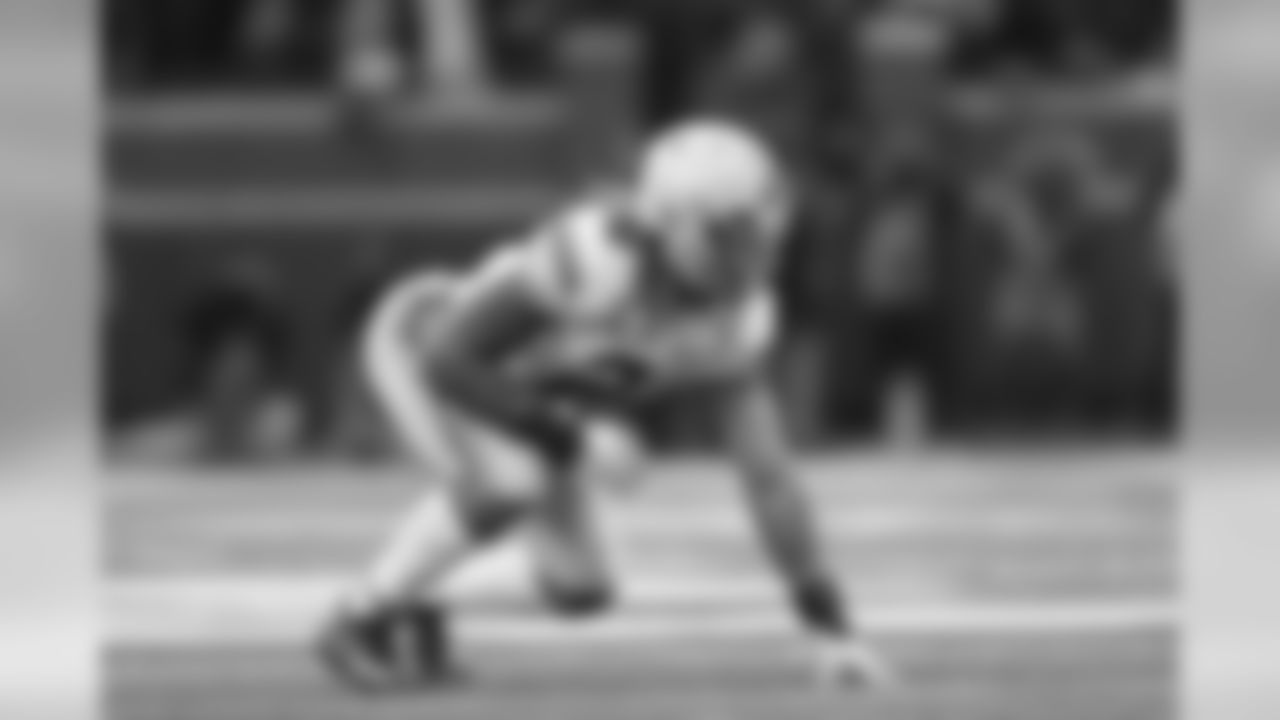
(2) E Chase Young - Redskins
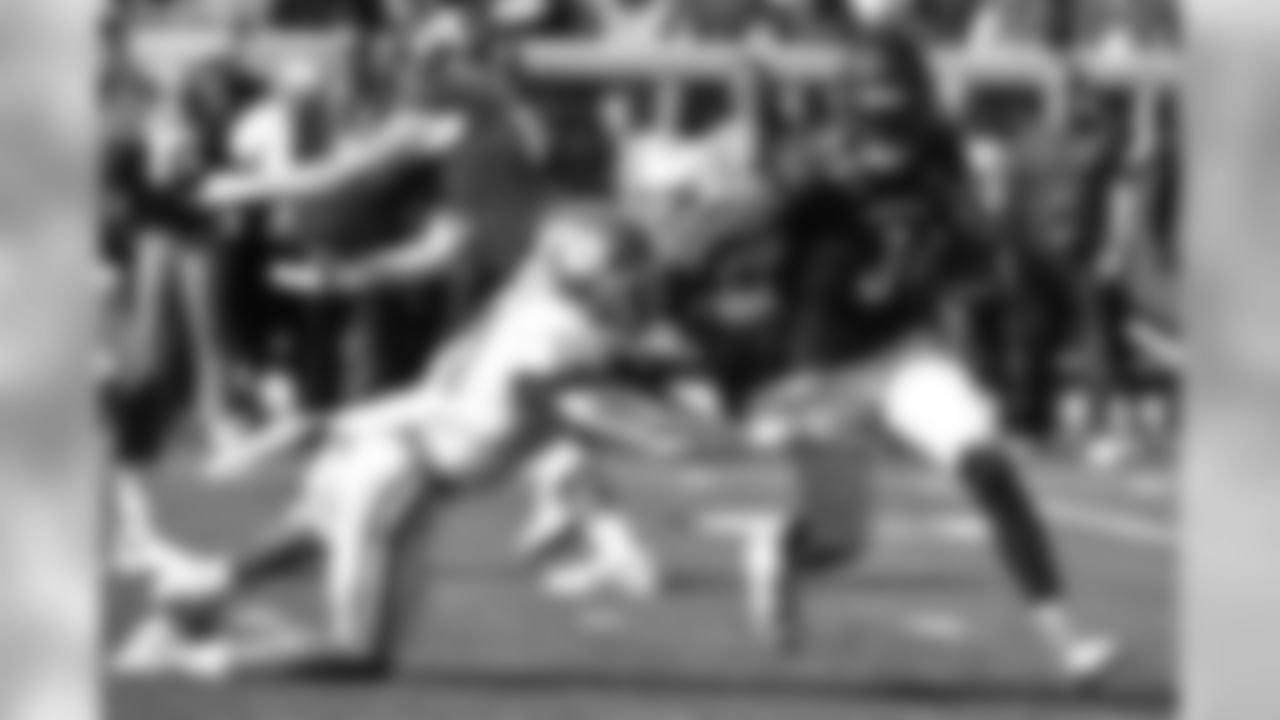
(3) S/LB Isaiah Simmons - Lions
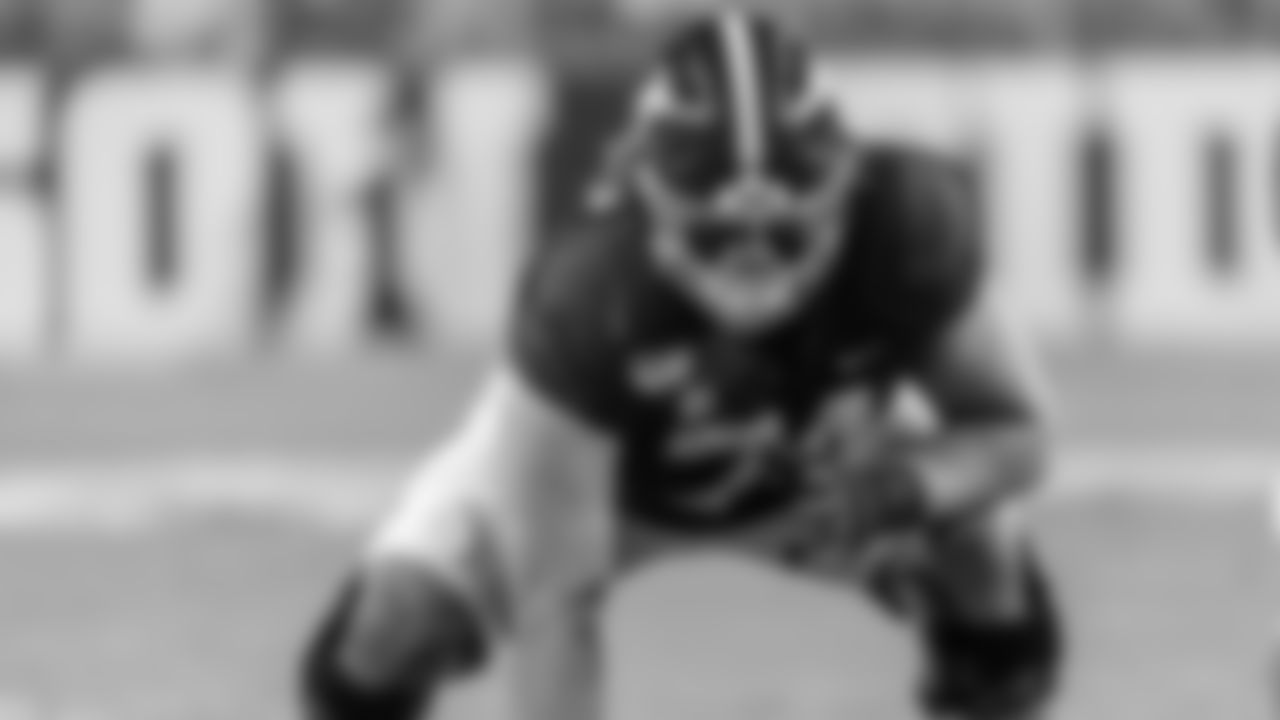
(4) OT Jedrick Wills Jr. - Giants
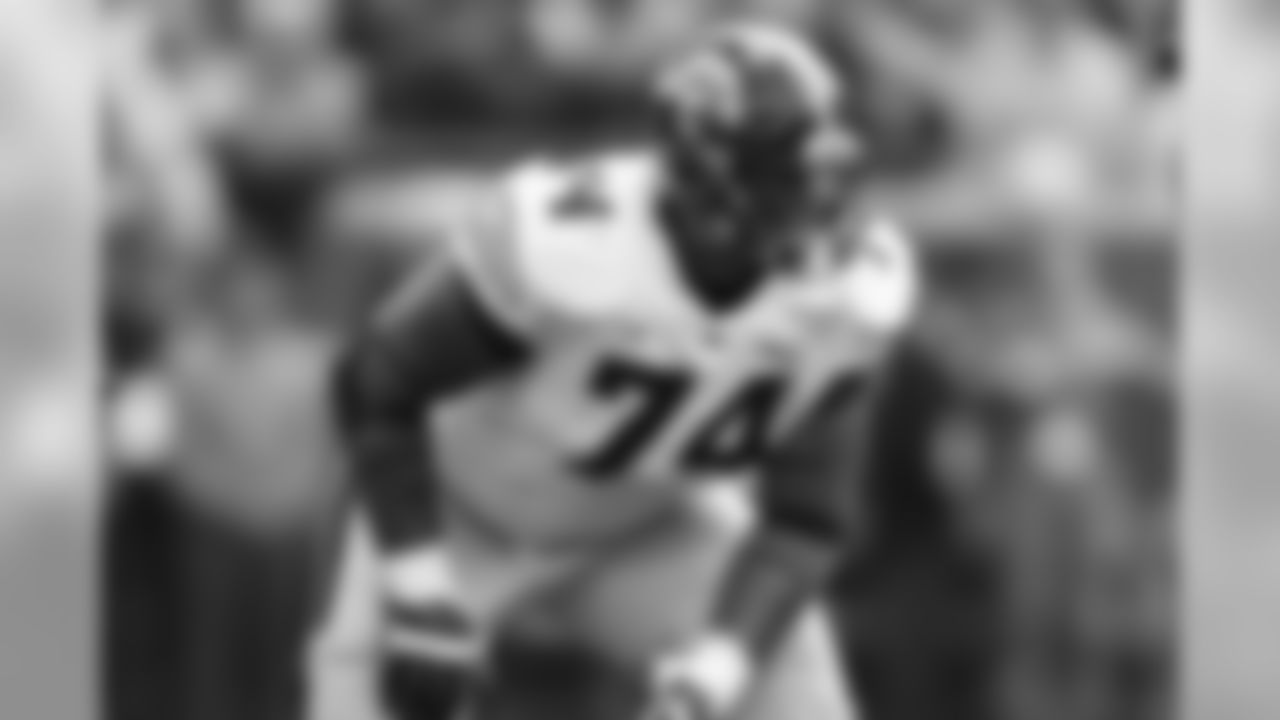
(5) OT Tristan Wirfs - Dolphins
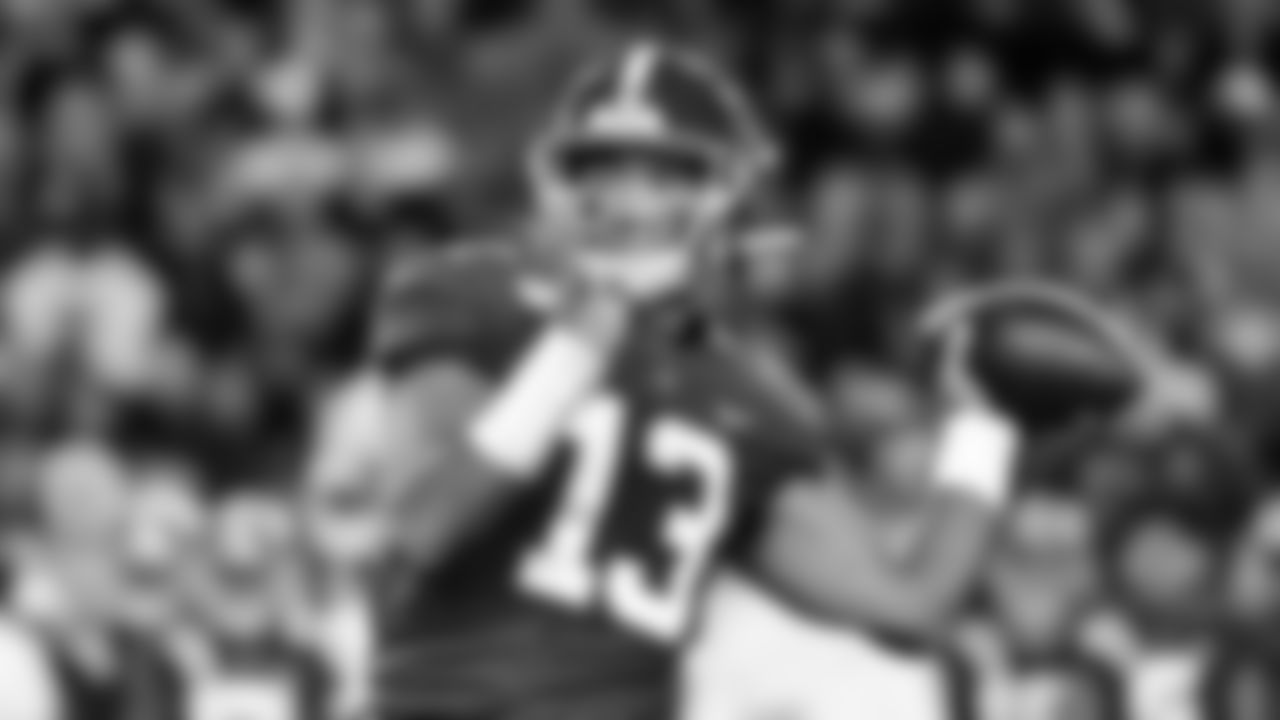
(6) QB Tua Tagovailoa - Chargers

(7) DT Derrick Brown - Panthers

(8) WR CeeDee Lamb - Cardinals

(9) CB Jeff Okudah - Jaguars
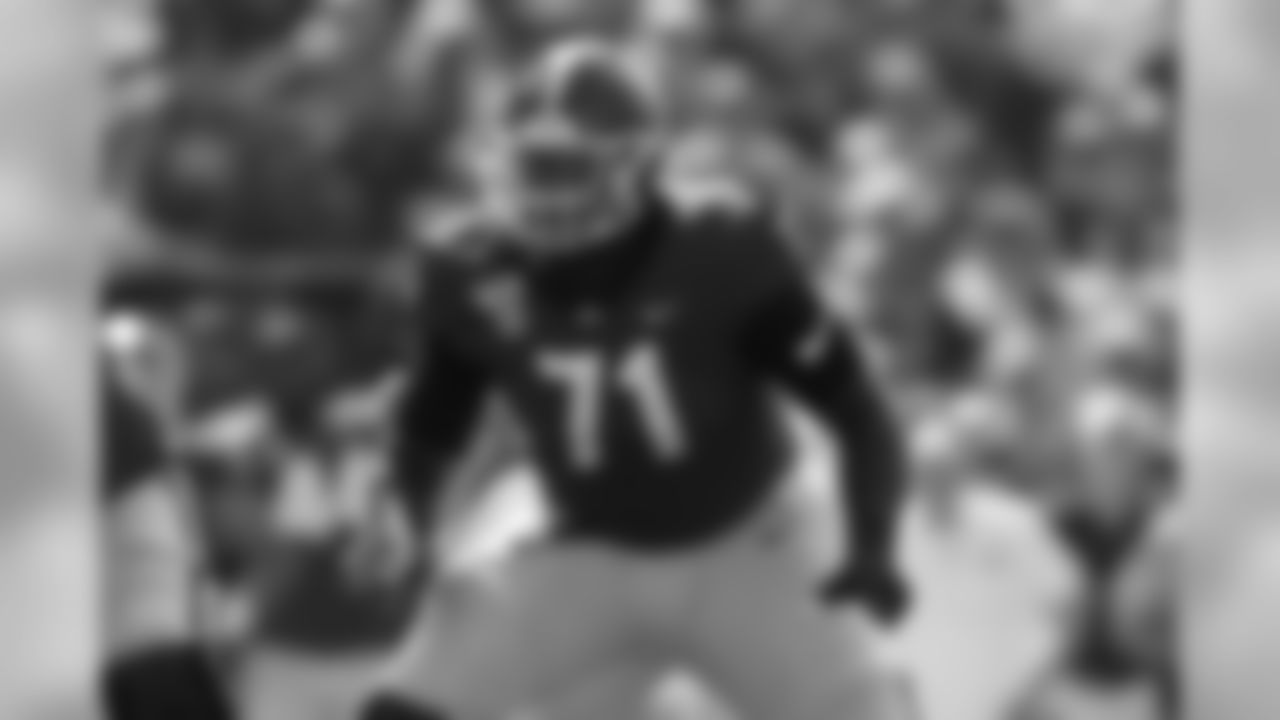
(10) OT Andrew Thomas - Browns
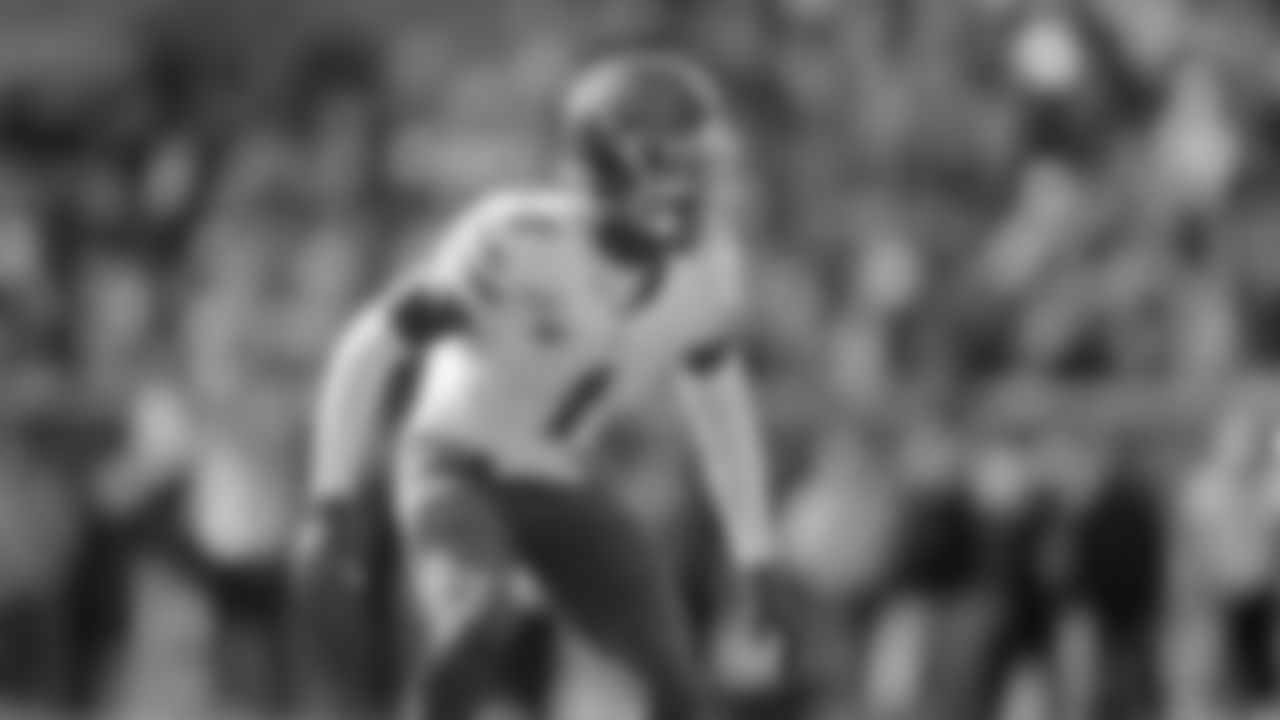
(11) CB CJ Henderson - Jets
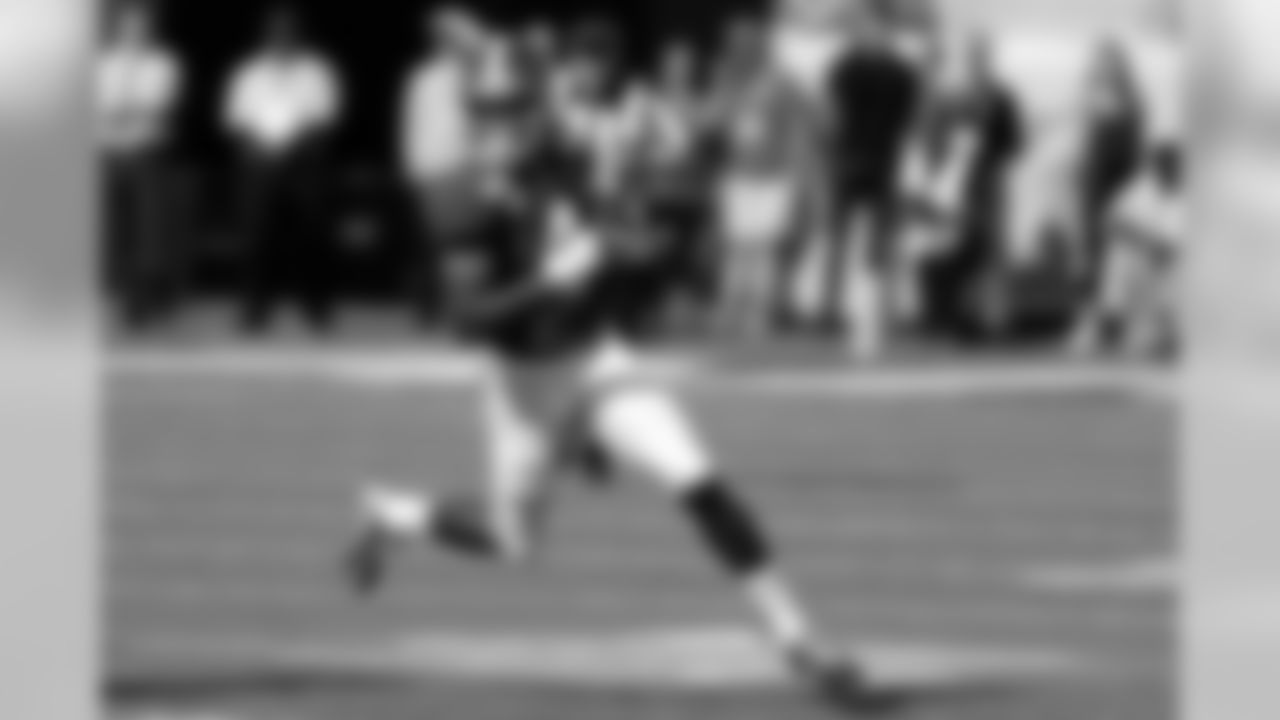
(12) WR Jerry Jeudy - Raiders
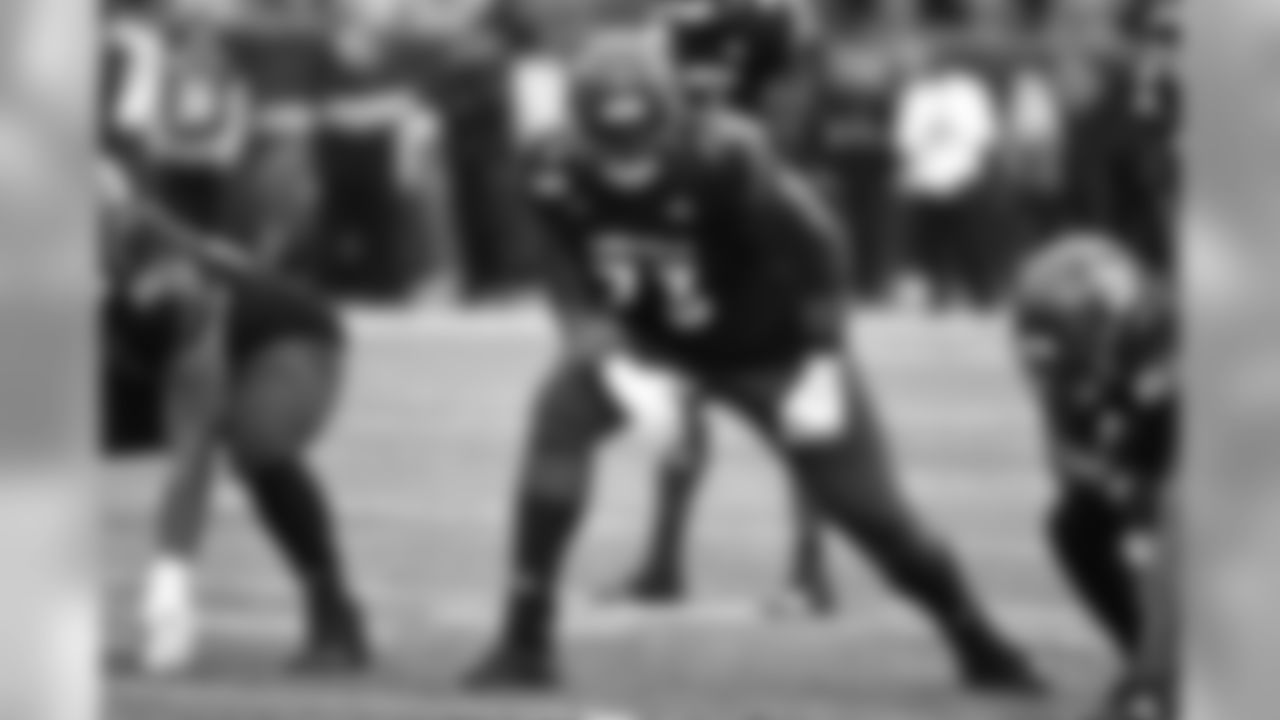
(13) OT Mekhi Becton - Colts
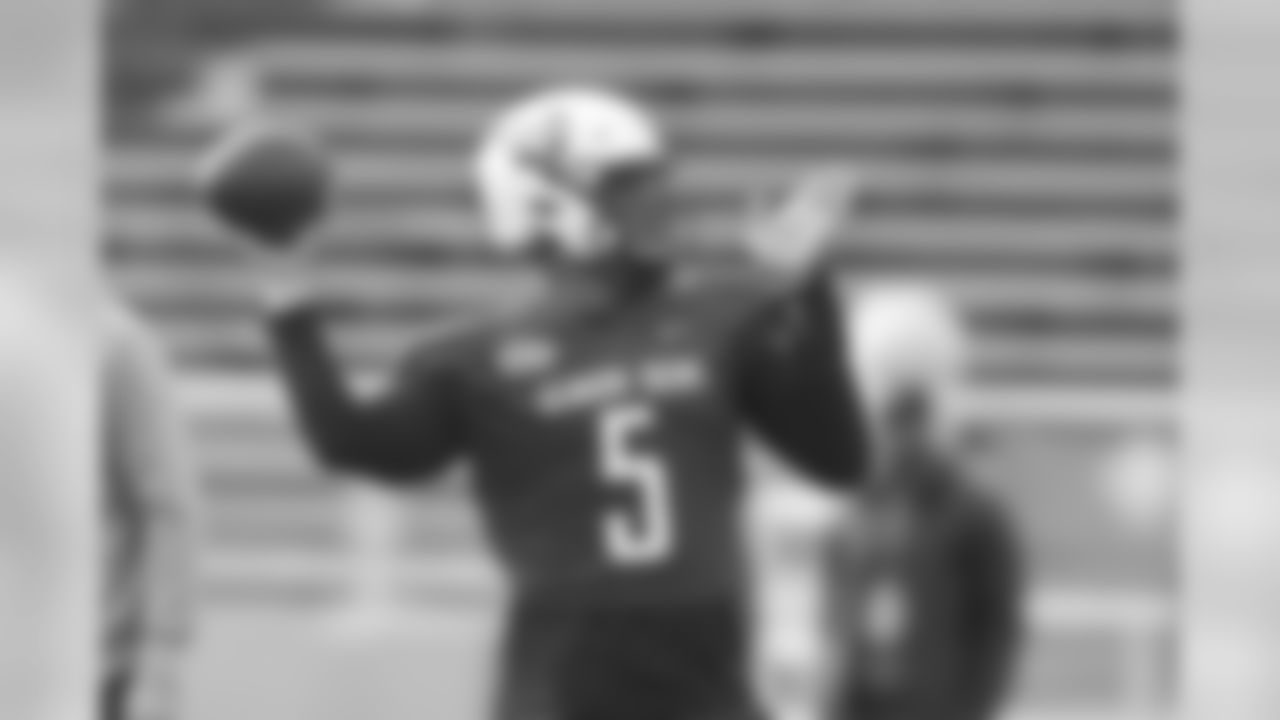
(14) QB Jordan Love - Buccaneers

(15) DT Javon Kinlaw - Broncos

(16) E A.J. Epenesa - Falcons
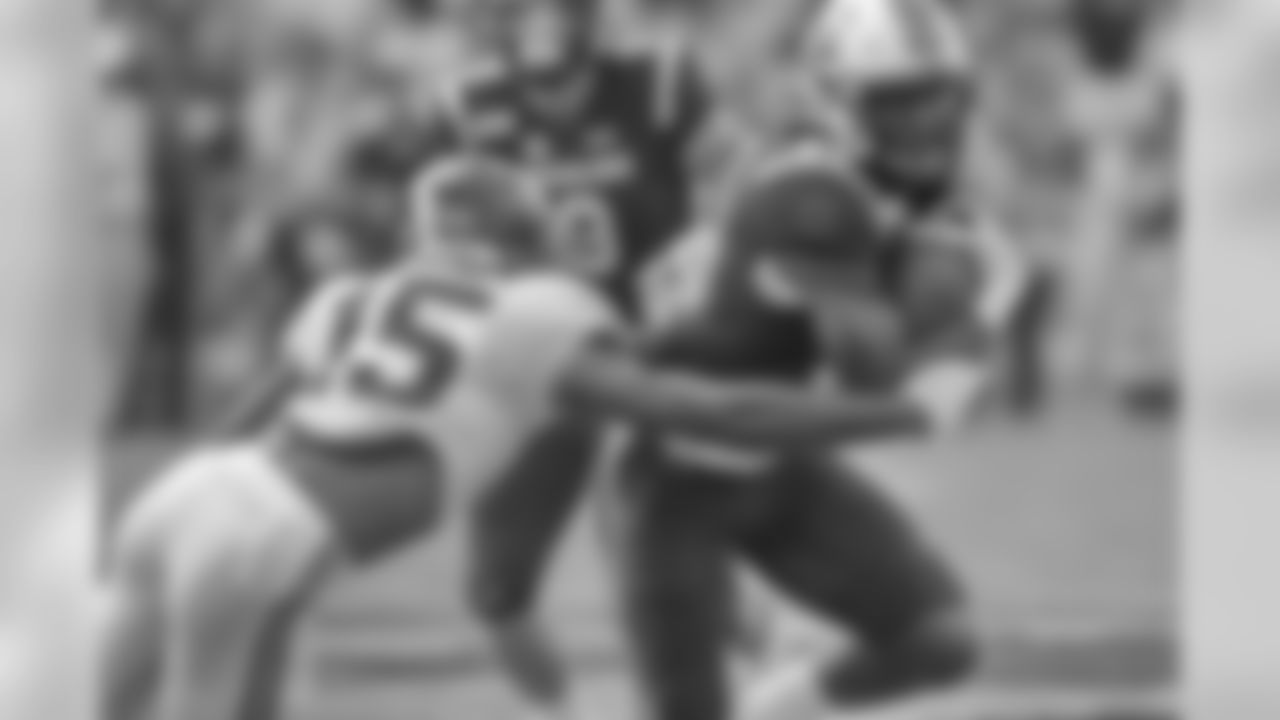
(17) S Xavier McKinney - Cowboys

(18) QB Justin Herbert - Dolphins
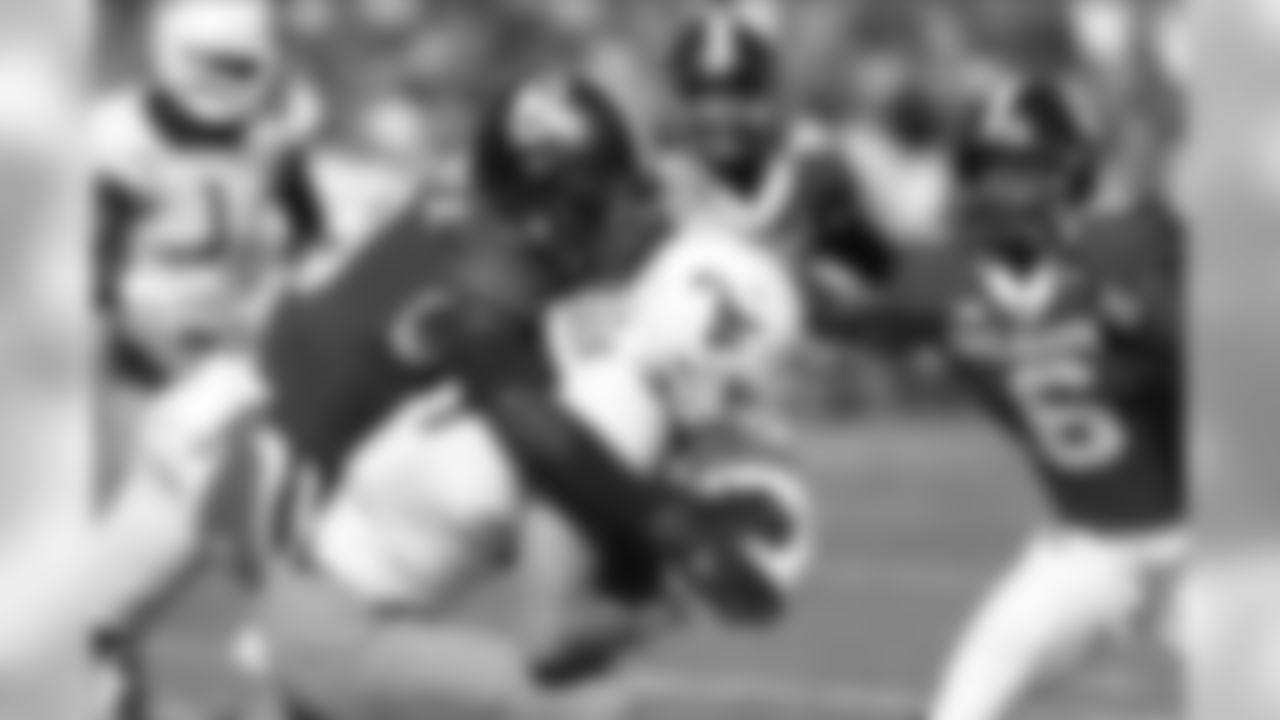
(19) LB Kenneth Murray - Raiders
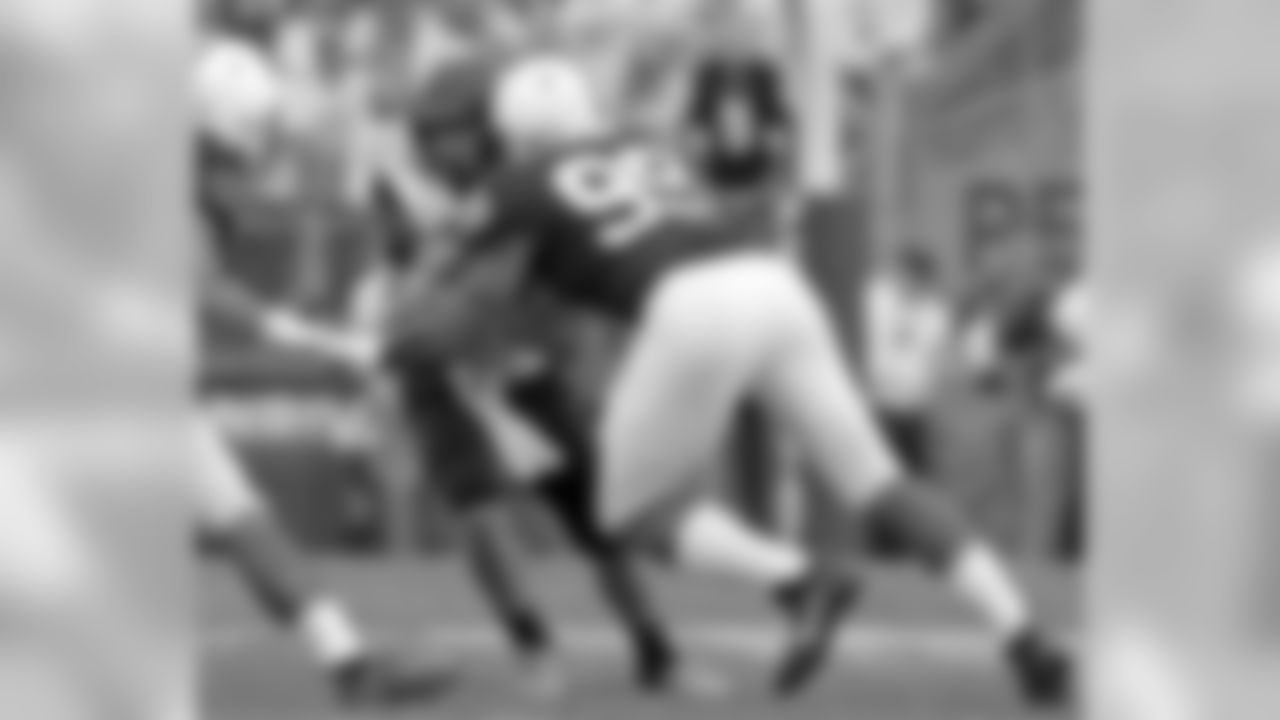
(20) E Yetur Gross-Matos - Jaguars

(21) WR Henry Ruggs III - Eagles

(22) WR Tee Higgins - Bills
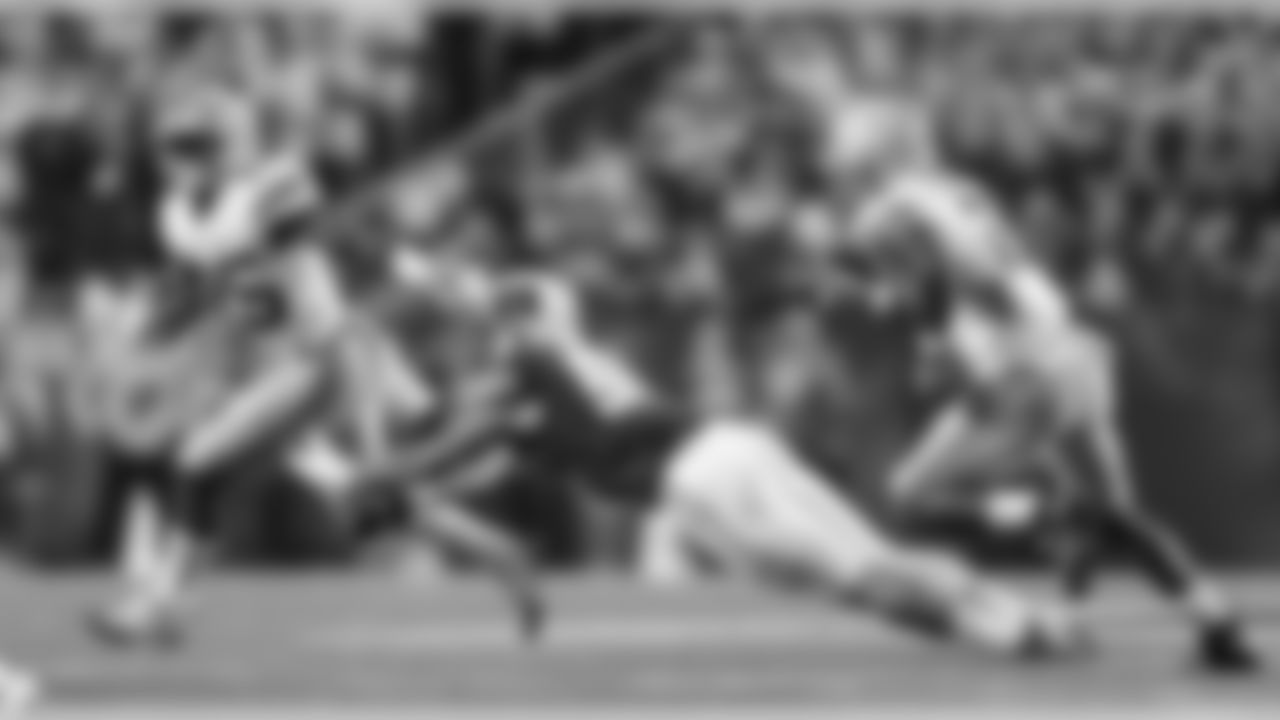
(23) OLB Zack Baun - Patriots

(24) CB Kristian Fulton - Saints

(25) S Grant Delpit - Vikings
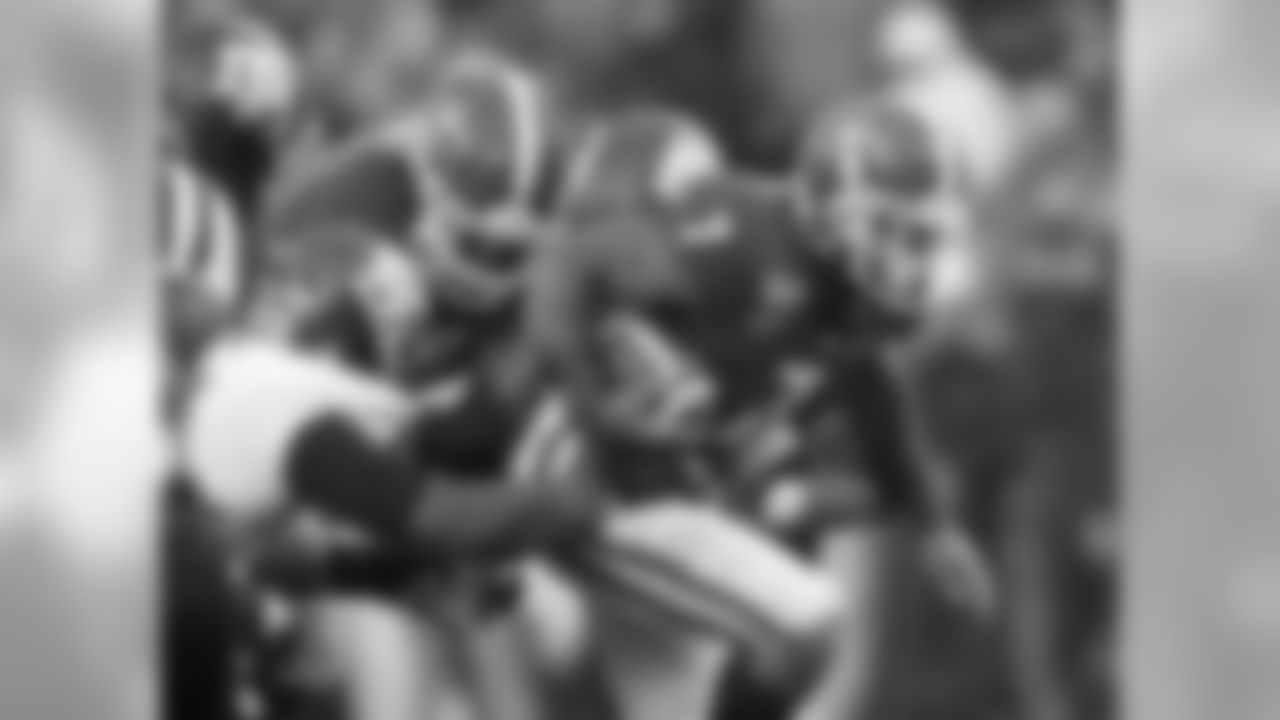
(26) RB D'Andre Swift - Dolphins
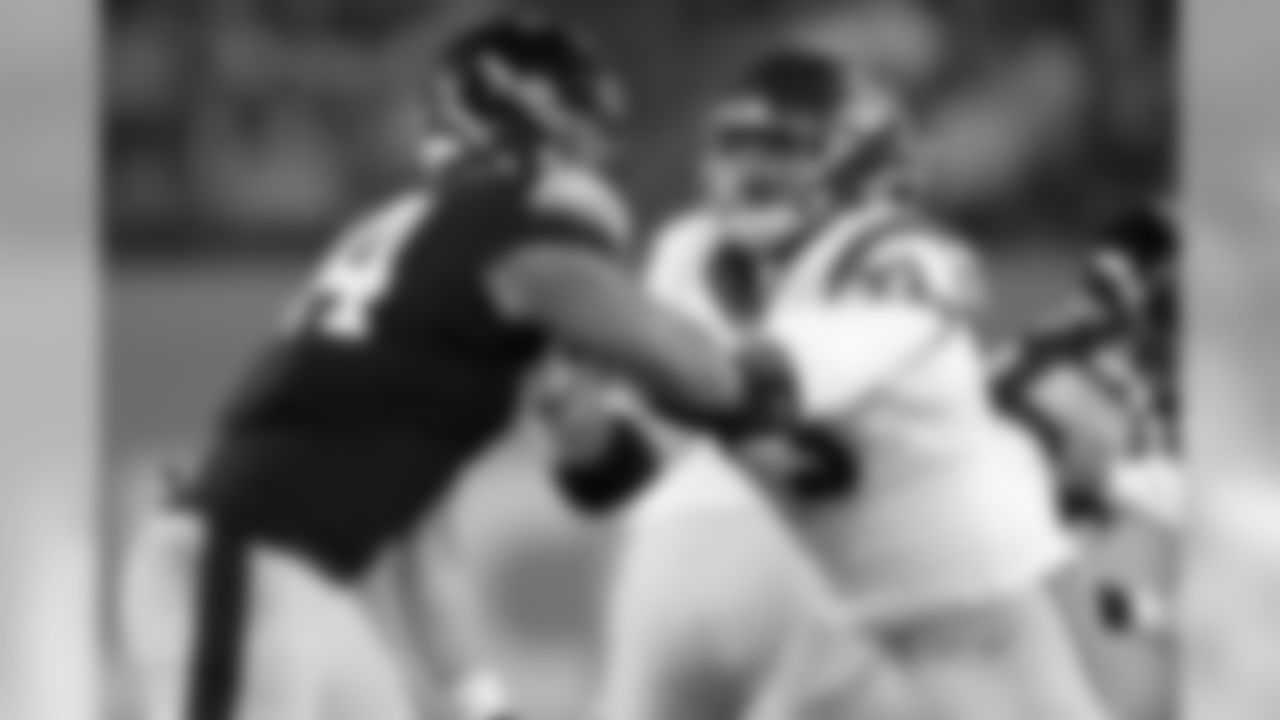
(27) OT Austin Jackson - Seahawks

(28) DE Marlon Davidson - Ravens

(29) CB Trevon Diggs - Titans

(30) OL Joshua Jones - Packers

(31) CB A.J. Terrell - 49ers

(17) LB K'Lavon Chaisson - Cowboys
The Competition Committee, which is chaired by Atlanta Falcons President Rich McKay, has already done its own review of the league's rulebook, incorporating feedback from coaches, general managers, medical advisors and NFLPA representatives. Prior to the Annual League Meeting in Palm Beach, which runs from March 29 to April 1, the Committee will consider the ideas submitted by clubs and draft its own proposals, which will then be presented in a report at the League Meeting for a potential vote. Whether or not the Eagles' onside kick proposal will go up for a vote has yet to be decided, but if it does it would need yeses on 24 out of 32 votes to be adopted.
The fourth-and-15 option seems a bit exotic, but the idea that pass-interference calls – and more notably non-calls – would be subject to replay review challenges would have seemed strange just a few years ago. The league took that drastic step a year ago, though a rocky first year of its implementation could lead to that rule change being reversed this year. New NFL rules are generally adopted for a trial year first before later becoming permanent. Trying out the new onside kick alternative for one year certainly seems reasonable.
The Eagles submitted three other rule-change ideas and the Miami Dolphins submitted one, while the Baltimore Ravens and Los Angeles Chargers got together on two other proposals. They are:
• (By the Eagles) Modify the blindside block rule to prevent unnecessary fouls.
For years, the NFL has tweaked its blocking rules in an attempt to reduce the types of contact most likely to cause injury, such as the horse collar rule. This one seems aimed more at cleaning up areas where liberal interpretation of the rules leads to penalty flags that seem questionable. The most visible one was thrown against the Bills in a playoff game against Houston, and as we learned from the Nickell Robey-Coleman pass interference non-call in New Orleans in 2018, officiating errors in the playoffs often lead to league action.
For the record, the Buccaneers had exactly one blindside block flag called on them last year, and it was on a defender after a turnover. Andrew Adams intercepted a deep pass in Detroit in Week 15 and returned it 64 yards to the Lions' nine, but the ball was brought back to Tampa Bay's 33 due to a flag on Jason Pierre-Paul.
• (By the Eagles) Make permanent the expansion of automatic replay reviews to include scoring plays and turnovers negated by a foul, and any successful or unsuccessful try attempt.
This seems like a no-brainer. While replay reviews have generated their fair share of controversies, the idea of automatically reviewing scoring plays and turnovers doesn't seem to have many detractors. Those plays are important enough to at least attempt to get right every time. In the same vein, this should apply to plays that were scores or turnovers but were negated by penalties.
Most of the frustration with replay reviews comes with the results, when what appears obvious to the observer is at odds with the ruling. For the Buccaneers in 2019, such instances usually involved the new pass-interference reviews. Probably the most prominent of the reviews on Buccaneer scores or turnovers in 2019 was the 91-yard Devin White fumble return for a touchdown against Atlanta in Week 17. Pierre-Paul hit Matt Ryan's arm, forcing a fumble that bounced forward seven yards into the arms of White, who ran untouched the other way. The play was reviewed to determine if it should have been ruled an incomplete pass attempt but the original call was upheld.
• (By the Eagles) Restore preseason and regular season overtime to 15 minutes and implement rules to minimize the impact of the OT coin toss.
The abbreviating of overtime periods from 15 minutes to 10 was another change made with player safety in mind. Before that change, Tampa Bay memorably played a game against Oakland in 2016 that went 13 minutes into the extra period, then had to take the field again four days later to face Atlanta on Thursday Night Football. The added fatigue likely contributed to a 43-28 loss to the Falcons.
That said, the 10-minute overtime period seems unnatural. In recent years, the league has modified its overtime rules from true sudden death to a procedure that allows both teams to have at least one possession unless the first team scores a touchdown on its first possession. The 10-minute rule competes with that attempt at fairness, however, because a time-consuming opening possession that does not result in a field goal can leave the second team with little time to operate.
This proposal by Philadelphia also includes a wrinkle that attempts to further reduce the importance of the overtime coin flip. The Eagles propose that the first possession automatically goes to whichever team scored the most touchdowns in regulation. If the touchdowns are even, then the coin flip is used.
The Buccaneers have played exactly one overtime game in each of the last five seasons and this rule wouldn't have changed any of them, as the touchdowns were even at the end of regulation in each one. The most recent Bucs game this proposal would have changed was a 37-31 overtime loss in New Orleans in 2014. Tampa Bay had a 4-3 edge in touchdowns at the end of regulation but the Saints won the overtime toss and scored on their first possession.
• (By the Dolphins) Provide the option to the defense for the game clock to start on the referee's signal if the defense declines an offensive penalty that occurs late in either half.
This one also seems like common sense. No reason that committing an offensive penalty should benefit the offense in any way.
• (By the Chargers and Ravens) Add a "booth umpire" as an eighth game official to the officiating crew.
• (By the Chargers and Ravens) Add a senior technology advisor to the referee to assist the officiating crew.
These two are obviously related and are efforts to improve the officiating process and get as many calls right as possible. The first one is the "sky judge" concept that seems to be gaining in popularity. There will be concerns about how it would affect the lengths of games, but it has been used effectively in other leagues. The second one adds a person to the officiating crew, working from the booth and providing expert advice on the technology and the rules.
If you're a fan of replay review as part of the game, you would probably have no reason to object to either of these proposals, as the league looks for ways to better utilize their technology. However, if you are frustrated by the results of replay review on a consistent basis, you might actually prefer the league moves towards less technology than before.



































